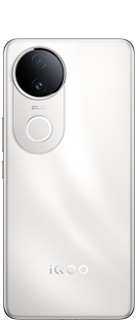Manus AI: The Robot Assistant That Can Think For Itself

Imagine having a digital helper that doesn't just answer your questions but actually gets work done while you're away from your computer—planning your vacation, analyzing stocks, coding a website, or even screening job applications. This science fiction scenario has just become reality with the emergence of Manus AI, a groundbreaking technology from China that's pushing the boundaries of what artificial intelligence can do.
Beyond the Chatbot: What Makes Manus AI Special
You've probably used AI chatbots like ChatGPT or Google's Gemini. These tools are impressive—they can answer questions, write essays, or help you brainstorm ideas. But they have a fundamental limitation: they need you to guide them every step of the way. It's like having an intelligent but dependent assistant who constantly asks, "What should I do next?"

Manus AI, developed by Chinese startup Butterfly Effect, represents something entirely different. Its creators claim it's the world's first "general AI agent"—a system that can work independently without needing step-by-step instructions from humans. Instead of just responding to prompts, Manus can think, plan, and execute tasks on its own, much like a human assistant would.
"It's like collaborating with a highly intelligent and efficient intern," wrote reporter Caiwei Chen, who tested Manus for MIT Technology Review. Unlike traditional chatbots, Manus doesn't just stop at giving you information or suggestions—it actually completes tasks from start to finish.
How Does Manus Work Its Magic?
What makes Manus different under the hood is its architecture. While most chatbots run on a single large language model (LLM), Manus uses multiple AI models working together—a "multi-agent system". This approach allows different specialized components to communicate and collaborate, similar to how a team of experts might tackle a complex project.

Manus can search the web for information, write and execute code, analyze data, and pull everything together into a comprehensive response—all without requiring you to provide additional instructions along the way. Most impressively, the system works from the cloud, which means you can assign a task, turn off your computer, and return later to find the completed work waiting for you.
Real-World Applications

What can Manus actually do? According to demonstrations shared by the company and early users, Manus can:
- Plan detailed holiday itineraries by researching destinations, accommodations, and activities
- Analyze stock market data and identify investment opportunities
- Screen job resumes by extracting key details and ranking candidates
- Research real estate by filtering properties based on safety, school ratings, and budget constraints
- Build and deploy fully functional websites from simple prompts
- Write complex code and analyze data for specific tasks
For example, when tasked with finding suitable real estate, Manus doesn't just list properties—it filters them based on multiple criteria, writes Python code to analyze financial viability, and compiles findings into a comprehensive report.
The Current Reality: Promising but Imperfect
Despite the excitement, Manus is still in its early days. It's not yet available to the general public, though some users have received invite codes, sparking intense interest online. Those who have tested it report mixed experiences—while Manus can indeed perform impressive feats of autonomous work, it also has its share of problems.
Users have reported crashes, system errors, and cases where Manus gets stuck in infinite feedback loops. Peak Ji, the company's chief scientist, acknowledges that Manus currently has higher failure rates than ChatGPT, describing these as "teething issues" in launching such a novel tool.
Testers also note that while Manus often provides more detailed responses than chatbots like ChatGPT, it typically takes much longer to deliver results as it conducts deeper research. Sometimes, it misunderstands tasks, makes incorrect assumptions, or takes shortcuts.
A Glimpse into the Future of AI
What makes Manus particularly significant is what it represents for the future of AI. Many experts see autonomous AI agents as the next major evolution in artificial intelligence—systems that don't just assist humans but can independently carry out complex tasks from start to finish.
"Manus isn't just another chatbot—it's a fully operational AI agent that embodies the industrialization of intelligence," notes one analysis. Some technology experts believe this shift from passive AI assistants to active AI executors could transform industries ranging from healthcare and finance to cybersecurity and education.
Manus also represents China's growing influence in the AI space. Following DeepSeek (another Chinese AI that made waves earlier this year), Manus demonstrates that innovation in artificial intelligence is becoming increasingly global. This development has caught the attention of Silicon Valley leaders, who recognize that advancements in autonomous AI systems could provide significant advantages in key industries.
Ethical Questions and Future Challenges
The emergence of autonomous AI agents like Manus raises important questions about the future relationship between humans and machines. When AI can operate independently, how do we ensure proper oversight and accountability? What happens when these systems make mistakes or decisions with real-world consequences?
As AI becomes more capable of independent action, societies will need to develop new frameworks for governance, ethics, and regulation. The transition from AI as a tool that responds to input to one that can make independent decisions introduces new complexities around control, safety, and responsibility.
The Road Ahead
Manus AI represents an exciting milestone in artificial intelligence—a glimpse at what the future might hold as AI systems become more autonomous and capable. While it's still early days for this technology, with plenty of limitations and challenges to overcome, Manus demonstrates that the gap between AI assistants and truly independent digital helpers is narrowing.
Later this year, Butterfly Effect plans to open-source parts of Manus, inviting the global AI community to explore and contribute to the development of autonomous AI agents. This could accelerate progress in this emerging field and potentially lead to new applications and capabilities we haven't yet imagined.
Whether Manus itself becomes the standard for autonomous AI or simply paves the way for future systems, one thing is clear: the relationship between humans and artificial intelligence is evolving rapidly. We're moving from an era where AI simply responds to our commands to one where it can think, plan, and act on its own—potentially transforming how we work, learn, and solve problems in the process.
The future of AI might not just be about smarter assistants—it could be about independent partners that help us accomplish more than we ever could alone.

@iQOOConnect@iQOOCare@ParakramHazarika@Nipun Marya@woahyash@Hasratsingh@ShankarSingh@SuhaniChawla@varunganjoo@Sourav@Anilyadav007@Inzamam@SameerShaikh@prasad.photos@JStreetS@Balajibalu_techie@MKJEDI@ayuu@YasirTheJOD@GokulNarain18@Gautamrawat_gsr@DhirajKumar@arjunbansal@TESVIPER10@HasanRazaKhan
@Cv18@Andybitts@Kvkartikji04@TechSAM009@Jabir007@RockyFTW@NaveenYerradla@sharon@Aojesh@RZNitin@Aojesh
Please sign in
Login and share






















